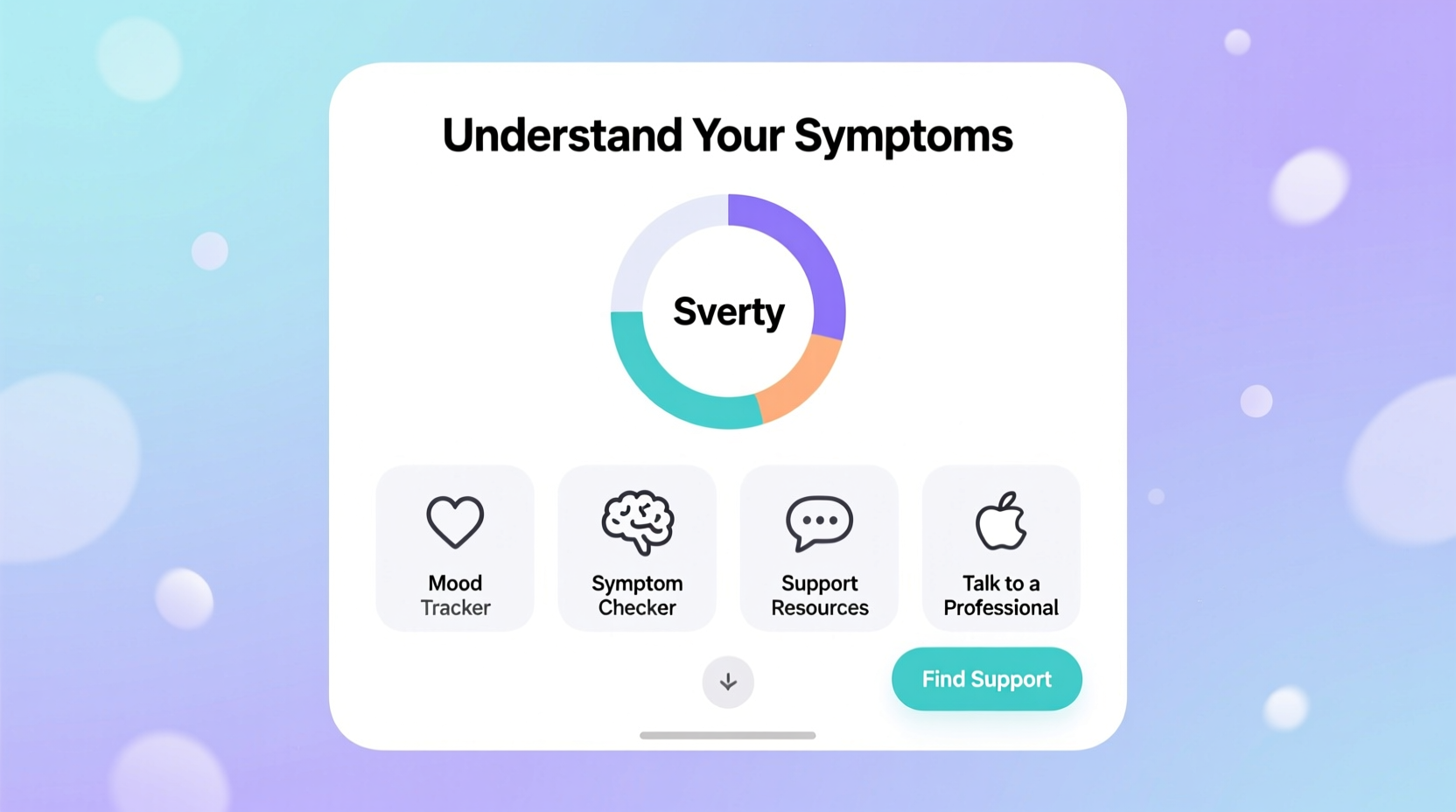Depression affects millions of people worldwide, yet many go undiagnosed or untreated due to stigma, lack of awareness, or uncertainty about their symptoms. Recognizing the signs early can make a profound difference in recovery outcomes. A well-structured depression quiz can serve as a valuable starting point—not for diagnosis, but for self-awareness and guidance toward professional help. This article explores how such tools work, what symptoms to watch for, and where to find reliable support.
How Depression Quizzes Can Help You Understand Your Mental State

Depression quizzes are screening tools designed to assess emotional patterns, behavioral changes, and physical symptoms commonly associated with depressive disorders. While they cannot replace clinical evaluation by a licensed mental health professional, they offer a confidential and accessible way to reflect on your inner experience.
These assessments typically ask about mood fluctuations, sleep quality, energy levels, concentration, appetite changes, and feelings of hopelessness or worthlessness over a recent period—usually the past two weeks. Responses are scored to indicate low, moderate, or high likelihood of clinical depression.
Common Symptoms of Depression: What to Look For
Depression manifests differently across individuals. Some may appear withdrawn and sad; others might seem irritable or numb. Physical symptoms often accompany emotional ones, making it harder to identify the root cause without reflection.
- Persistent sadness, emptiness, or anxiety
- Loss of interest in hobbies or activities once enjoyed
- Changes in appetite or weight (increase or decrease)
- Sleep disturbances (insomnia or oversleeping)
- Fatigue or loss of energy
- Difficulty concentrating, remembering, or making decisions
- Feelings of worthlessness or excessive guilt
- Recurrent thoughts of death or suicide
“Screening tools help bridge the gap between suffering in silence and seeking help. They normalize conversations about mental health.” — Dr. Lena Patel, Clinical Psychologist
Using a Depression Quiz: A Step-by-Step Guide
Taking a depression quiz should be done thoughtfully and honestly. Follow these steps to get the most accurate insight from the process:
- Choose a reputable source: Opt for quizzes developed by mental health organizations like the National Institute of Mental Health (NIMH), Mayo Clinic, or Psychology Today.
- Set aside quiet time: Answer questions when you’re alone and free from distractions to reflect accurately.
- Be honest with yourself: There are no right or wrong answers—only truthful ones that reflect your current state.
- Review your results carefully: High scores don’t confirm a diagnosis but suggest the need for professional consultation.
- Follow up appropriately: Share your results with a therapist, counselor, or doctor if they indicate possible depression.
Do’s and Don’ts When Using a Mental Health Screening Tool
| Do’s | Don’ts |
|---|---|
| Use validated questionnaires (e.g., PHQ-9) | Rely solely on quiz results for diagnosis |
| Take the quiz more than once over time to track changes | Compare your score to others’ experiences |
| Discuss results with a healthcare provider | Ignore severe symptoms like suicidal thoughts |
| Keep your responses private unless sharing with a trusted professional | Use online quizzes as a substitute for therapy |
Real Example: How One Person Used a Quiz to Seek Help
Sarah, a 34-year-old teacher, had been struggling with low motivation and constant fatigue for months. She dismissed it as stress from work until a friend shared a link to a PHQ-9 depression quiz. After taking it privately one evening, Sarah scored in the moderately severe range. The result startled her—she hadn’t realized how much her mood had declined.
She printed the results and brought them to her primary care physician, who referred her to a therapist. Within three weeks, Sarah began cognitive behavioral therapy and later started medication under supervision. Six months later, she reported significant improvement in sleep, energy, and overall outlook.
Sarah’s story illustrates how a simple screening tool can act as a catalyst for change—especially when followed by action.
Where to Find Reliable Support After Taking a Quiz
A high score on a depression quiz isn’t a verdict—it’s an invitation to explore support options. Here are proven pathways to consider:
- Primary Care Physicians: Often the first point of contact; can conduct evaluations and refer to specialists.
- Licensed Therapists or Counselors: Provide talk therapy modalities like CBT, DBT, or interpersonal therapy.
- Psychiatrists: Medical doctors who can prescribe medication and manage treatment plans.
- Support Groups: In-person or virtual communities offering peer connection and shared coping strategies.
- Crisis Resources: Hotlines such as 988 (U.S. Suicide & Crisis Lifeline) offer immediate help during emotional emergencies.
FAQ About Depression Quizzes and Symptom Tracking
Can a depression quiz diagnose me?
No. Only a licensed mental health professional can diagnose depression through a comprehensive clinical assessment. Quizzes are screening tools, not diagnostic instruments.
How often should I take a depression quiz?
If you're monitoring symptoms, taking a standardized quiz every few weeks can help track progress or regression—especially during therapy or medication adjustments. Avoid over-testing, as frequent scoring may increase anxiety.
What if my quiz suggests I’m not depressed, but I still feel off?
Mental health exists on a spectrum. You might be experiencing adjustment issues, burnout, or another condition like anxiety or bipolar disorder. Persistent discomfort warrants professional discussion, regardless of quiz outcomes.
Action Plan: Next Steps After Completing a Depression Quiz
Understanding your symptoms is only the beginning. Turning awareness into action is what leads to healing. Use this checklist to move forward with clarity and confidence:
- ✅ Save or print your quiz results for reference.
- ✅ Schedule an appointment with a healthcare provider or mental health specialist.
- ✅ Write down specific symptoms or life events you’d like to discuss.
- ✅ Bring a trusted friend or family member to your first session if you feel anxious.
- ✅ Explore local or online therapy platforms if in-person visits aren't feasible.
- ✅ Practice self-compassion—seeking help is a sign of strength, not weakness.
“The bravest thing I ever did was admitting I needed help.” — Anonymous user, shared via NAMI support forum
Conclusion: Your Mental Health Matters—Start the Conversation Today
Depression doesn’t discriminate, but help should be accessible to everyone. A depression quiz is more than a series of questions—it’s a mirror held up to your emotional world, offering a chance to pause, reflect, and act. Whether you're concerned about yourself or someone you love, recognizing symptoms early and connecting with support can alter the course of recovery.
You don’t have to navigate this journey alone. From trusted screening tools to compassionate professionals and resilient communities, resources exist to guide you forward. Take the quiz, acknowledge what you’re feeling, and reach out. Healing begins not with a cure, but with a conversation.









 浙公网安备
33010002000092号
浙公网安备
33010002000092号 浙B2-20120091-4
浙B2-20120091-4
Comments
No comments yet. Why don't you start the discussion?